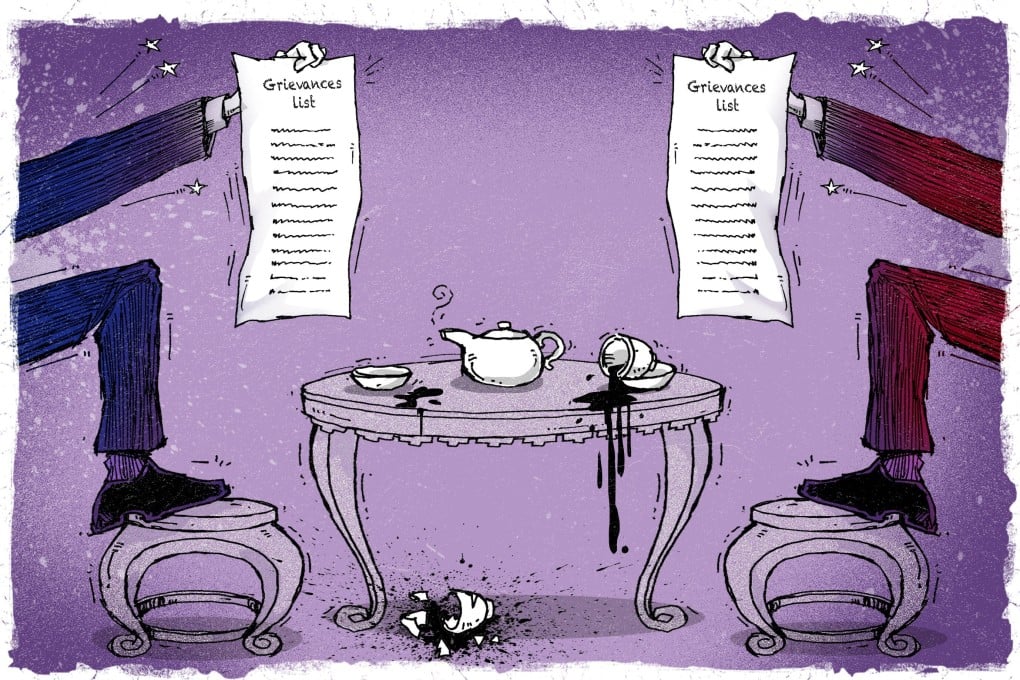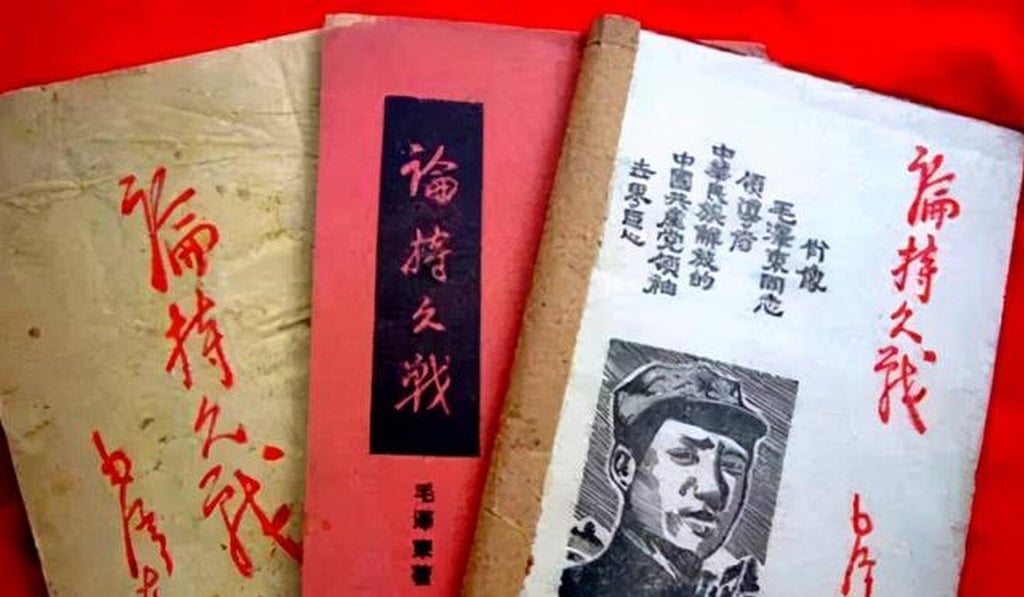US-China relations: Beijing takes pointers from Mao in protracted power struggle with US
- After years of pushing mutual respect and cooperation, Chinese diplomats are now demanding ‘fair competition’ from Washington
- Mao Zedong’s decades-old advice on how to deal with a failing Japanese empire has new relevance for the party’s new generation

China and the US have been at loggerheads on almost all fronts, but with tensions continuing into the Joe Biden presidency, where is the relationship heading? After US deputy secretary of state Wendy Sherman’s visit to Tianjin last week, and the Washington debut of China’s new envoy to the US Qin Gang, this series aims to check the temperature of bilateral relations. In this article, Catherine Wong looks into how Beijing is reviewing and adjusting its US policy.
For the Chinese Communist Party’s promising young cadres, a book of Mao Zedong’s speeches delivered during the country’s resistance against Japan in World War II has become required reading at the Central Party School.

For years, China defined relations with the US through its maxim of a “new model of major country relations”, hoping that principles like “no conflict or confrontation”, “mutual respect” and “win-win cooperation” could provide a framework for maintaining stable ties with Washington and prevent the inevitable scenario of great power rivalry.